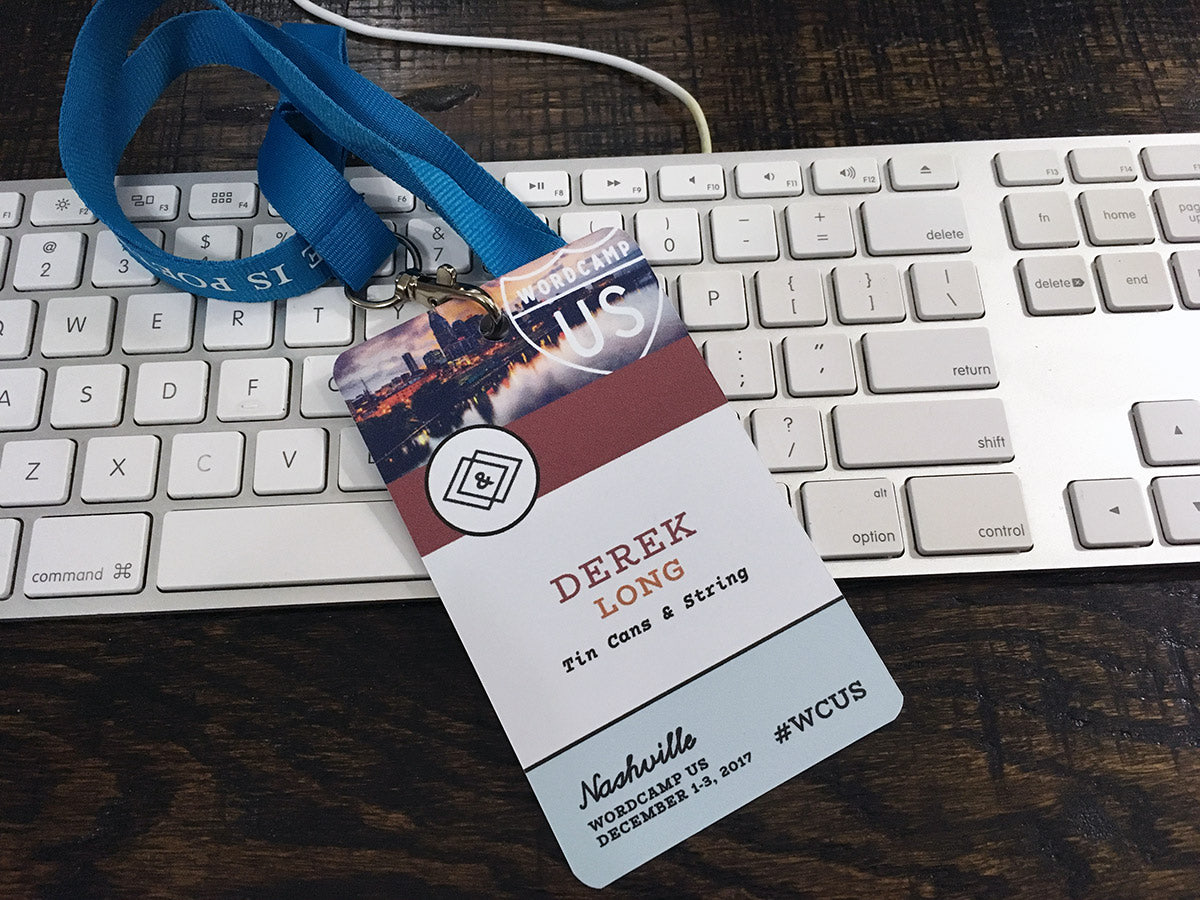WordPress accounts for nearly 100% of my projects with Tin Cans & String so of course when I moved back to the Nashville area I purchased my ticket for WordCamp US. It wasn’t my first WordCamp, as I’ve attended a couple of Nashville WordCamps, but it was my first WordCamp US conference.
The conference was held at the Music City Center in downtown Nashville (first time I’ve been, that place is huge). I enjoyed some great sessions, good food, and all the of people and vendors nerding out over WordPress. I had a good time catching up with my ol’ bud Kevin and exploring what WordCamp US had to offer.
Accessibility
Awareness about accessibility has, unfortunately, just became a big deal in the past year or so. I’m guilty of ignoring it myself and have recently started to learn more about it. I want accessibility to be my default as much as good design, but I’m still learning.
I believe I sat in on most, if not all, of the sessions concerning accessibility. The first two were from Rian Rietveld who traveled from The Netherlands to talk about Accessibility Testing Tools and Workflow and Jeremy Felt talking about Managing Accessible Content across a massive number of sites at Washington State University. Later that day I also sat in on Josh Pollock’s session Five Attitudes Stopping You From Building Accessible WordPress Websites which, sadly, echoed several of my attitudes on the matter.
Other Notable Sessions
CSS Grid by Bob Viser is a topic I’ve been interested in and have used a bit but not in production quite yet. If you are interested you can check out his css grid page here or visit Grid By Example to learn more. His attitude about the web and using CSS Grid was quite entertaining.
Security the VIP Way by Ryan Markel was a nice reminder about some simple ways we could all use to tighen up how we use WordPress.
Financial Forecasting by Christie Chirinos was a great talk for someone like myself who pays more attention to the latest CSS specifications than the financial aspects of business. In a business where forecasting seems so unpredictable she gave some helpful tips on how to tackle it.
Designing for Generation X by Michael Hill was one of those session that you go to because they sound intriguing (or because the other sessions at that time weren’t). Mike walked us through how they redesigned Erickson Living based on user profiles and tests with Generation X in mind. I love talks about the process so I really enjoyed this one.
A large number of the sessions can now be found on WordPress TV.
The State of the Word is Gutenberg
Last but not least, in The State of the Word keynote Matt Mullenweg, co-founder of WordPress, summarized the highlights of 2017 and what’s ahead for WordPress in 2018. If you are involved in WordPress at all you’ve likely heard that the big change coming in 2018 (Matt predicts April) is a new way of editing content called Gutenberg.
Gutenberg, boldly named after Johanness Gutenberg, will be a new publishing experience for the WordPress content editor. It’s likely the biggest change to WordPress in over a decade. The idea is that you’ll no longer be confined to the types of content in the current default content editor but instead you’ll be able to control your types content by using “blocks” with the promise of rich customization over your posts and pages.
Of course with any change there is an equal amount of excitement and concern. My thoughts land somewhere in the middle. As a user it’s very exciting to see that you’ll be able to have more control over your content. As a designer and developer of custom themes I’m a bit more cautious and would even go so far as to say that I’m reluctant to provide users with this control.
The way I currently build is I take what WordPress gives me out of the box and customize it for the client’s needs with Advanced Custom Fields. This customization allows me to gives the user the control while constraining this control based on the design of their site. (Basically a client hires me for a job, they want to edit their site, but they also don’t want so much control they could mess things up.)
So what does this mean for the way I’ll build websites after WordPress 5.0 is released? At this point I’m really unsure and it’s too early to speculate, but I’m hopeful that the WordPress community (and also ACF) will come up with something that will be even better than what we have now. There’s obviously a need for something better, I just hope Gutenberg is it.
